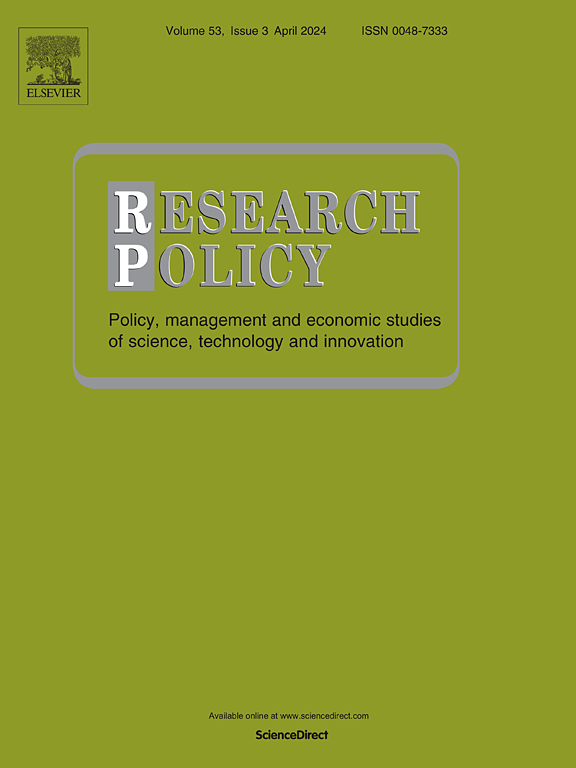研究资金的组合方法
IF 7.5
1区 管理学
Q1 MANAGEMENT
引用次数: 0
摘要
本研究认为,投资组合理论可以为科研经费决策提供强有力的工具。所提出的方法允许在项目相互依赖和多重政策目标的情况下,进行知情的管理决策过程。尽管投资组合模式具有改善资助决策的潜力,但在实践中并未得到广泛应用。最常见的方法是择优资助,即由评估人员对单个建议的评分来指导资助决策。一种可能的解释是,惯例在遴选过程中发挥了作用。调查数据显示,研究与创新政策领域的政策执行者相对更倾向于择优资助模式,这表明存在 "俱乐部效应"。本文章由计算机程序翻译,如有差异,请以英文原文为准。
A portfolio approach to research funding
This study argues that portfolio theory can provide a powerful tool to make research funding decisions. The proposed methodology allows for an informed management decision process, also in the presence of project interdependencies and multiple policy objectives. Despite its potential to improve funding decisions, the portfolio model is not widely applied in practice. The most common approach is merit-based funding where the evaluators' scores of the individual proposals guide funding decisions. A possible explanation is that conventions play a role in the selection process. Survey data show that policy practitioners working in the field of research and innovation policy have a relatively strong preference for the merit-based funding model, suggesting the presence of a “club-effect”.
求助全文
通过发布文献求助,成功后即可免费获取论文全文。
去求助
来源期刊

Research Policy
MANAGEMENT-
CiteScore
12.80
自引率
6.90%
发文量
182
期刊介绍:
Research Policy (RP) articles explore the interaction between innovation, technology, or research, and economic, social, political, and organizational processes, both empirically and theoretically. All RP papers are expected to provide insights with implications for policy or management.
Research Policy (RP) is a multidisciplinary journal focused on analyzing, understanding, and effectively addressing the challenges posed by innovation, technology, R&D, and science. This includes activities related to knowledge creation, diffusion, acquisition, and exploitation in the form of new or improved products, processes, or services, across economic, policy, management, organizational, and environmental dimensions.
 求助内容:
求助内容: 应助结果提醒方式:
应助结果提醒方式:


